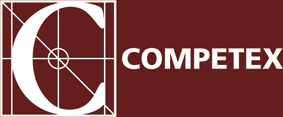A P11D (Return of expenses and benefits) is issued for every client who has an overdrawn director’s current account at 5 April, and/or has claimed reimbursement of expenses, or benefits in kind, during the tax year.
Forms P11D have to be completed and submitted to HMRC by 6 July following the end of the tax year and there is an immediate initial penalty for late submission. Please be aware that we will not be able to prepare your P11D until you have entered all your transactions for the year to 31 March in to Competex FreeAgent, or that we have received all quarterly returns up to 31 March. It is essential that you enter all of your transactions to Competex FreeAgent, or we receive the last of your Excel quarterly returns as soon after the end of March as possible, and certainly no later than the last Friday in April, if we are to meet this deadline.
The expenses that we would expect to see on your P11D for a tax year are listed below. The total amount spent under these headings during the tax year will be included on your P11D, even though the expenditure has been exclusively on company business. Indeed, you should have claimed as expenses from the company only those amounts that are bona fide business expenses, and consequently you should be able to claim the total amount included on your P11D as allowable business expenditure on your personal tax return. The only exception that is likely to arise is medical insurance, on which you will have to pay both income tax and employer’s NI.
The following are the principal expenses:
Professional fees and subscriptions – These must be for business purposes. A complete list of allowable organisations is set out on the HMRC website at List 3 HM Revenue & Customs Deductions for fees and subscriptions paid to professional bodies or learned societies. If the organisation to which you have paid fees or subscriptions is not included in this list, then the expense may not be allowable for corporation tax purposes.
- Travel and subsistence payments – The cost of business travel includes subsistence costs attributable to the journey in question. Similarly, if you have to stay away overnight on business, the cost of the accommodation is part of the cost of the business travel. Please also read the note in 1.4.6 regarding travel.
- Entertainment – This is not an allowable expense in computing the corporation tax liability of the company. However, provided the entertaining is for bona fide business purposes, tax will not be charged when computing your personal liability to income tax. Although the cost of a ‘Christmas party’ (maximum £150 per member of staff) is not a bona fide business expense, by HMRC concession it is treated as such for corporation tax purposes, and tax will not be charged on this when computing your personal liability to income tax.
- Payments for use of ‘home telephone, internet and personal mobiles’ – You are obliged to pay for the rental of your ‘home telephone’, but may charge the cost of business calls to the company. You may charge the entire cost of a second phone used for business, and of your internet contract and a single mobile phone provided the contracts for the internet and the phone are in the name of the company.
Tax and employer’s national insurance contributions are payable on almost all other taxable benefits in kind, and we will need to be assured that the company has not paid you or your family any amounts under the headings set out below. If you have incurred any such expenses, you must contact us as soon after the end of March as possible, and certainly no later than the last Friday in April, so that we can make whatever adjustments are required.
- Company assets transferred to you at other than market value
- Company assets used for private use
- Pensions advice
- Life and critical illness policies
- Costs associated with the provision of living accommodation (not use of home as office)
- Fuel (except for hire cars exclusively on business)
- Motor expenses of any kind other than business mileage allowance at HMRC approved rate
- Low interest or interest free loans
- Subscriptions and fees not exclusively and necessarily incurred for business purposes
- To cover this, we ask in the year-end reply sheet whether you have paid for anything other than standard expenses, all of which can be claimed as business expenses.
You will need to include the P11D figures in your personal self assessment tax return, and you should not file your personal tax return without doing so. When we send you your P11D, we will also tell you how to claim these expenses as allowable business expenses in your personal tax return.
Dispensations
If you have a system for approval of expense claims by your fellow director it is possible to apply for a dispensation from reporting certain business expenses/benefits on form P11D. The types of items that are commonly included in dispensations are entertainment, use of home telephone, professional subscriptions, business travel and subsistence. You can apply for a dispensation on the HMRC website, but please let us have a copy of the application and of the correspondence you receive from HMRC as each dispensation notice is unique and the items covered will vary.
We will need this to complete your P11D in accordance with the dispensation notice or to advise HMRC that no P11Ds are due.
